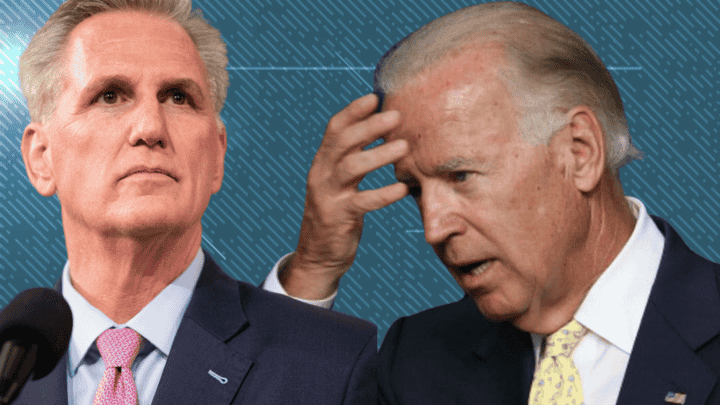A pixelated bird must fly and dodge obstacles in Flappy Bird, a smartphone game that requires you to tap the screen in order to move it.
Dong Nguyen, the man behind Flappy Bird, decided to remove the game after receiving a deluge of interview requests and hate mail. It was announced on February 9th, 2014, that the original game would be shut down.
What is Flappy Bird?
A pixelated bird must fly and dodge obstacles in Flappy Bird, a smartphone game that requires you to tap the screen in order to move it.
The bird automatically flies to the right and can be kept in the air by tapping on the screen. The game is over if it strikes the ground or a pipe obstacle.
Each time you pass ten pipes, you will receive a medal in recognition. For instance,
Bronze for ten horns
Twenty pipes in silver
a kilo of gold for thirty pipes
Platin for forty pipes
The game’s mechanics are simple to pick up, but mastering them is an entirely different matter. Within the first ten or so pipes, beginner players are usually out of the game.

Sharing high scores with friends and even simultaneously with them was also possible in the future versions.
For Android and iOS devices, Flappy Bird was available A version for Amazon’s Fire TV Box was also produced by its developer in the future.
Read More: Post Malone Controversy: He Clarifies the Controversy Around His “don’t Listen to Hip Hop” Remarks
All of the app stores that had Flappy Bird suddenly withdrew the game after it had been downloaded tens of millions of times. It will be explained in the next chapters how this happened, who created it, and why it was removed.
What Ever Happened to Flappy Bird?
Flappy Bird was created and released in May 2013 by Dong Nguyen’s gaming studio dotGEARS, a Vietnamese developer.
A town outside of Hanoi, Van Phuc was home to Nguyen’s childhood. His parents had a hardware store and government job, but they still didn’t have a lot.
The family was eventually able to afford an imitation Nintendo system, which is not uncommon in a country like Vietnam (and other developing nations).
Playing Super Mario Bros and Counter-Strike were two of his favorite pastimes when he was little.
He also learned how to program on his own early in life. By the time he was 16, he had developed a chess program of his own. A programming competition he entered three years later earned him a spot in the top twenty, all the while he was studying computer science at a Hanoi-based institution.
Punch Entertainment, one of Hanoi’s few gaming studios, offered him an internship after he won the competition. Later, he joined the labor, where he worked evenings on various coding projects while programming taxi positioning devices.
Shuriken Block, his first project, was released in April 2013 and contained many of the same (game design) choices that made Flappy Bird such widespread success. Shuriken Block was a huge success.
In little time at all, he started working on Flappy Bird, the sequel to his first game. It was a year ago when he drew Cheep Cheeps, a pixelated bird based on a Nintendo fish.
His previous games, like this one, were based on sports mechanics. Nguyen was a big fan of drawing from his own experiences. Sports, in particular, adhere to the principle that something is simple to learn but complex to master. For Flappy Bird, the game’s inspiration came from his practice of trying to bounce a ping-pong ball for as long as he could on a paddle.
He created the first version of the game in just one weekend and launched it on May 24th, 2013, for the iPhone. He didn’t do anything to market his new game other than releasing a screenshot on Twitter.
I am sorry ‘Flappy Bird’ users, 22 hours from now, I will take ‘Flappy Bird’ down. I cannot take this anymore.
— Dong Nguyen (@dongatory) February 8, 2014
Initially, Flappy Bird was a simple game to master. Consequently, Nguyen opted to reduce both horizontal and vertical pipe distances. Unfortunately, his initial efforts were an utter flop.
Six months after its first discharge, the first indications of life began to appear in early November. The very first review of the game had been written. “Fuck Flappy Bird,” read the message.
Nevertheless, things picked up steam the next month. In December, the game’s download statistics surged by a whopping 2500 percent, propelling it to the top 10 free app lists in certain regions. Two more dog ears titles, Shuriken Block and Super Ball Juggling reached the top 10 as well, at the same time
Flappy Bird went on to become the most downloaded free iOS app in the world a few days later, on January 17th, 2014. Nguyen also published an Android version of the game on January 24th to kick off the new year. It was already at the top of the Google Play Store charts a week after its Android debut.
Fan reviews like “My family doesn’t dare enter” started popping up on the game’s website. The last time my brother had a shower, was almost a month ago.” In addition to increasing the game’s attractiveness, the hilarious frustration many players experienced while playing it became synonymous with the game itself.

One of the reasons for the game’s popularity was the ease with which players could return again and time again to see how they liked it. As a result, you’ll want to share it with others. To top it all off, the appearance of 8-bit figures brought back fond memories for many.
Read More: Sssniperwolf Controversy: From Photoshop to Fictitious Video Games
In spite of the lack of evidence, Nguyen was accused by others of purchasing installs from bot farms, despite the game’s meteoric rise.
Nguyen’s persona has become increasingly popular since Flappy Bird became a worldwide hit. Reporters from throughout the country and around the world wanted to speak with him.
According to a story published by The Verge
Nguyen was generating roughly $50,000 a day via in-app advertising. When Nguyen’s face appeared in Vietnamese publications and even on television, his parents were surprised since they didn’t know what he was doing for a living.
Before long, Nguyen had determined that he couldn’t take it anymore. On the 8th of February, 2014, he tweeted the following:
Exactly one day later, Flappy Bird was no more. In the days that followed, reports spread that Nguyen had committed himself or that he had taken down the game because Nintendo was preparing a lawsuit, all of which were untrue.
Read More: Grayson Allen Controversy – Duke Basketball Star Avoids Controversy in The Latest NBA Predicament
Concurrently, rivals were scrambling to fill the hole. Similar games like Ironpants, Flappy Bee, or Fly Birdie quickly rose to the top of the charts once Flappy Bird was taken down. These Android games had malware, which drove up the cost of phone service for users.
Although Flappy Bird was no longer being used, Nguyen was still making a lot of money from it. Until recently, Flappy Bird had been downloaded more than 50 million times on Android and iOS devices. Aside from that, smartphones pre-loaded with the game were fetching upwards of $100,000 on eBay! (although the marketplace later took those auctions down).

Sometime after Flappy Bird’s demise, a firm called Ultimate Arcade Inc. said it had acquired the trademark and threatened anyone who tried to use the name in any way.
After that, nothing much happened for a few months When the game reappeared on Amazon’s Fire TV box on August 1st, it had been renamed Flappy Birds Family. The mechanics of the game were somewhat altered when the bird was controlled using the Fire TV remote.
It also had a two-player option that pitted them against one other. Moreover (thus the Family name). Many people speculated that Amazon had purchased exclusive rights to Flappy Bird for some nice chump pay because the new version of the game didn’t have any adverts. Until this day, Flappy Bird is still playable and accessible on the Amazon Fire TV.
For what reason it was Deleted?
Dong Nguyen, the man behind Flappy Bird, decided to remove the game after receiving a deluge of interview requests and hate mail.
As previously said, The Verge published an article saying that he was making $50,000 a day from his game, which sparked a lot of interest in him.
Nguyen will soon be inundated with inquiries from national and international media outlets asking him to participate in interviews.
At one point, Nguyen had to hide from the paparazzi in his parents’ house in his hometown of Hanoi.
Then there was an increase in cyberbullying. He received a deluge of angry mail from parents, educators, and athletes alike. A few examples include parents no longer being able to communicate with their children or people losing their jobs as a result of playing the game at work.
In fact, he made a request to his Twitter followers: kindly avoid contacting me.
Read More: Hardik Pandya Controversy: I Learned a Lot from Karan’s Coffee, But My Family Was Abused
Flappy Bird’s Creator
Dong Nguyen, the creator of Flappy Bird, still lives in Hanoi, Vietnam, where he was born and raised. Later, Nguyen released two additional games and gave a few speeches at game-related events such as GDC and PAX East.
Immediately following the release of Flappy Birds Family, Nguyen released Swing Copters, his fourth game. Many of the game’s problems and mechanics were inherited from its illustrious predecessor.
Swing Copter 2 was released a year later, in December 2015. They were eventually removed from the App Store and Google Play Store because of their failure to gain traction.

This time around, he launched Ninja Spinki Challenges in January. It has almost 4,000 ratings on Google Play at the time of writing.
M. Nguyen continues to do quite well for himself despite the dismal reception of his future games “When I was a student, I figured that if I acquired $1.1 million, I would retire, but now I have multiple times that money yet I still cannot retire,” he stated in a VN Express interview in 2019.
Nguyen made headlines again in 2021 when social media users started distributing an image that claimed he had forecast the coronavirus in 2014.
For more updates, keep visiting Pelham Plus



